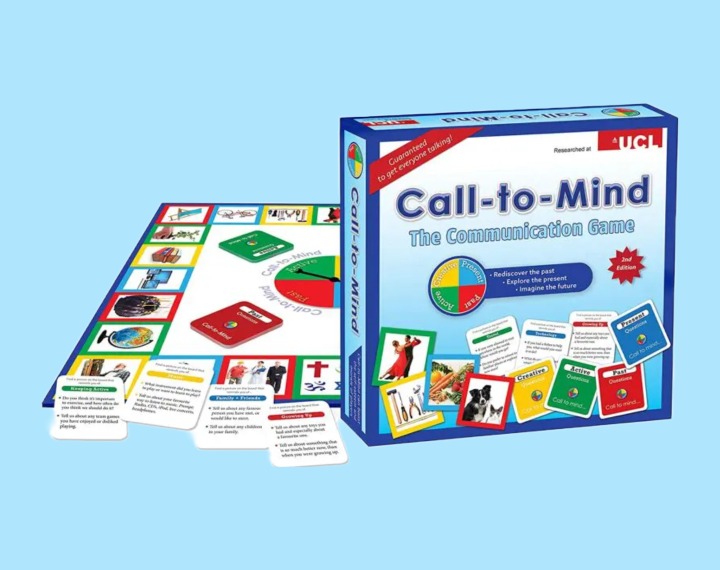Dementia Board Games: What are the Benefits?
 One of the fondest memories that most people have is sitting down with their family and playing board games. This is a memory that is a crucial part of every childhood - board games are an activity that children of all ages tend to enjoy. From preschool-aged children to those in seniors in their golden years, board games are a universal way to reconnect with the enjoyment of spending time with those that we love.Of course, these games aren’t just for the young - in fact they can be extremely beneficial for older people with dementia or memory problems.
One of the fondest memories that most people have is sitting down with their family and playing board games. This is a memory that is a crucial part of every childhood - board games are an activity that children of all ages tend to enjoy. From preschool-aged children to those in seniors in their golden years, board games are a universal way to reconnect with the enjoyment of spending time with those that we love.Of course, these games aren’t just for the young - in fact they can be extremely beneficial for older people with dementia or memory problems.
Studies have shown that playing boad games can have many positive benefits for people with dementia, from cognitive benefits to physical health benefits. Whether a senior with dementia is in a care home or lives at home, board games can be a fantastic way to keep their minds active, and boost cognitive function. In addition to being a great way for the whole family to re-connect and spend some important quality time having fun together.
What board games are best?
There are a wide range of board games available, from traditional board games like Monopoly and Fraustration to specially designed, dementia-friendly board games like Call to Mind.
Playing the Call To Mind dementia board game helps people with dementia express their feelings, say what they might like to do, and engage with the people trying to help them. It helps people to talk and share experiences. It stimulates recall, positive personal memories, inspiring conversations and making it easier for them to enjoy quality time with family, friends and carers across all generations. As well as stimulating the mind, playing the game also exercises the senses, hand movement and speech.
There are plenty of board games to choose from, but specially developed games like Call to Mind may be more beneficial to people with dementia, than normal board games.
How do board games benefit seniors with dementia and memory problems?
Helps Memory: Losing key memory skills and succumbing to dementia is a worry for many seniors, and board games can help prevent this type of cognitive decline. By focusing on memory and cognitive associations, board games support the hippocampus and prefrontal cortex of the brain, which are two of the first areas that are affected in the early stages of dementia and Alzheimer’s.
Reduces Stress: When you recall memories of playing board games, one of the first things that likely come to mind is And laughing has some serious health benefits, regardless of your age! Enjoyable board games can cause the release of endorphins, which relax the muscles and increase circulation in the body—resulting in lowered blood pressure.
Builds Immunity: The body’s immune system needs extra support as we age, and stress and anxiety can all contribute to compromised immunity. Luckily, research has shown that those who enjoy playing board games release neuropeptides that fight back against stress and build up the immunity of your body.
Increases Dexterity: Simple tasks become even more difficult as we get older, and fine motor skills can be a challenge to retain as the effects of aging take their toll. However, like most things, practice makes perfect, and the more that you work on dexterity and coordination the better it becomes. Moving small game pieces and shuffling cards are both great ways for seniors to work on dexterity in a fun, relaxed way.
It doesn’t matter how old you are, nobody ever outgrows the fun of playing a board game! Between the time spent with loved ones to the laughter and the health benefits, there’s no better pastime for seniors than breaking out a board game and enjoying quality time while supporting your body.
Take a look at our range of jigsaw puzzles from Gibsons. Images are great for reminiscence - to evoke memories and spark conversation. Suitable as a rehabilitation activity and can be enjoyed by adults living with Dementia or who have cognitive impairment as well as anybody who may find a standard jigsaw puzzle challenging.
Doing a jigsaw puzzle has many wellbeing benefits, including cognitive stimulation and enhanced motor skills, as well as providing an activity to share with loved ones of all ages.





